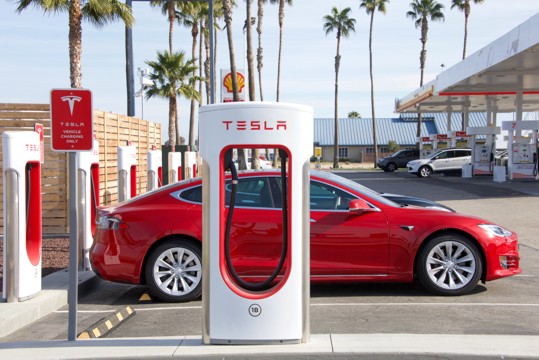The electric vehicle revolution six years on. What did our EV blog get right and what was way off the mark?
Back in January 2016, we blogged on electric vehicles (EV’s). We were excited that Tech entrepreneurs might be building an EV world and that Big Auto were up against a massive threat after 100 years. Intuitively, Big Auto would cope with this opportunity or threat, but was there something different here? How would an Engineer see it?
So, what did we get right and what wrong?
Six years ago, media was fixated on Self Driving cars. That was our headline. Yes, self driving moves forward but we still seem miles away from our favourite glimpse of the near future in Minority Report. In 2016, we could also see another engineering story behind the headlines and today in 2021 that is the big deal.
In our blog of 2016, we noted that Tesla were planning on shifting 50K vehicles per annum. This was a lot in manufacturing terms, but Big Auto talked 500K or 5M vehicles. But there was an utterly driven Tech entrepreneur involved. Where was all this going?
Electric vehicles in 2021
We now know the answer or at least some idea where this is going. This week, the FT had rather a thoughtful article. Alarming if you are Big Auto. Tesla has reached 500K vehicles per annum. A German Tesla plant is just coming on stream. Unbelievably, the company still has a perceived lead in technology. Most striking is that Tesla claims it takes 10 hours to build one of their vehicles and Volkswagen reckon 30-40 hours. A week or two ago, the newspaper had another perceptive article on China’s BYD blade design batteries, their electric vehicles and whether BYD founder and Tech entrepreneur Wang Chuanfu was the Thomas Edison of our age. Warren Buffett certainly thought he might well be and has invested in BYD.
There are some dynamic entrepreneurs in the picture here. Elon Musk has to be saluted for his vision and drive. It has been a mighty tough ride for Tesla and it is difficult to believe that the stellar valuation for the company can be justified in the long term. Maybe it will endure. Wang Chuanfu is another visionary. He will undoubtedly have been helped by batteries having been identified as a key strategic technology by the Chinese government, but BYD are a firm to watch. And let’s not forgot Korean chaebols who have made legendary plays in technology, EV’s included. Whether it is visionary entrepreneurs, massive market valuations or Government promotion, the results six years on speak volumes and give a taste of what might yet unfold.
Big Auto vs Electric
We pondered back in 2016 whether Big Auto was rather keen on electrifying legacy products as a fix rather than having to start absolutely from zero. The reality is that neither then nor now could you instantly convert your worldwide capacity to electric. That never was an option. And the IC engine industry still has life in it, despite Climate Change, the rise of renewable power and the question mark over fossil fuels. Stockholders would probably assume that the business model could adapt and have their slice of EV’s when it happened. Was it really that difficult to move to electric? Some car makers faced the challenge and others don’t seem to have taken our Tech entrepreneurs that seriously. The reality was that a lot of the second-tier suppliers to Big Auto had very close historic ties to their customers and were probably rather keen to keep offering longstanding catalogue parts. That is commendable engineering. Why reinvent something and risk developing new? Except, some of it doesn’t seem to work for EV’s. Musk has had a track record of developing his own technology and components both in Tesla and Space X rather than buying proven, IC car legacy parts from a catalogue for his car company. Read Ashlee Vance’s excellent biography of the man. An Engineer would agonise about development risk, but for Tesla it seems to have worked. It doesn’t sound to have been an easy ride. Independent commentators still think that Tesla technology is ahead of Big Auto, which is quite amazing. We can’t think that the international Auto Industry saw that coming six years on. You could ask “how can this be with all the resources that Big Auto has?” Maybe the most successful Tech entrepreneurs aren’t taken seriously until it is too late.
Building an electric vehicle?
There are some strategic decisions in designing an electric car. Tesla sourced their own batteries through a joint venture with Panasonic to control the IP, cut transport and gain economies of scale. These battery “giga factories” seem to be part of the DNA of the company. Tesla also developed their own platform for saloon cars around the heavy battery pack on day one. The 500kg “pack” needs to be dropped as low as possible and every cubic centimetre of space used. This keeps the centre of mass down near the road and will provide the basis of a better vehicle design. Maybe trying to cram batteries into sheet metal parts using existing plant and tooling has been a drag for old school auto manufacturers. We don’t know the true story. Nissan worked hard on electric early on. To their credit, BMW also got in quite early and developed their i3 as a city EV, but it is VW who have really taken this very seriously and spent a fortune on advanced platforms for their own electric vehicle range. The FT reports that they are the one manufacturer who have a good chance of leap-frogging Tesla on production. Maybe.
There are so many unknowns around the periphery of the EV industry. Which manufacturers don’t have deep enough pockets to develop their own platforms? There has been some doom and gloom about UK sports car manufacturing and the nuts and bolts of offering stand-out EV’s to the world. Well- heeled customers could just decamp to alternative sports car EV’s with truly stunning performance from elsewhere in the world. Will a badge still matter? We can’t say. Will local battery production dictate where cars are manufactured? Will Manufacturing UK be at the party or rather stuck outside the room. Could fast changing technical standards discourage consumers big-time? Will Chinese vehicles be the winner? Indeed, do the Chinese hold all the cards on strategic materials? Nobody really knows.
What does the future hold for electric?
It is conceivable that an almost invincible Big Auto will take the most massive hit from our Tech entrepreneurs in EV’s. There were 50K horses working in London in 1900 and perceived wisdom was that motor vehicles and horses would co-exist. That didn’t last. EV’s even had a moment of promise around 1900 then it fizzled out. Automobile manufacturers took over and shaped our world for 100 years on the back of the internal combustion engine. And what a ride it has been. We certainly wouldn’t bet against the EV business in the future.
This doesn’t seem very real-world in our home of Salisbury. Will there really be enough charging stations and a long enough battery life for Sarum Hydraulics to trade in their IC engine vehicles and move to EV’s? Will Boris really manage to get a charging point on every house? Not today, but our take is that visionary entrepreneurs will make this happen. I am sure that we will embrace the new vehicles. And who wouldn’t be pleased not to pump filth into the fresh Wiltshire air?
We’ll carry on sending our Micropac pumps around the world and will reflect again in six years. We’ll meet again.






Leave A Comment